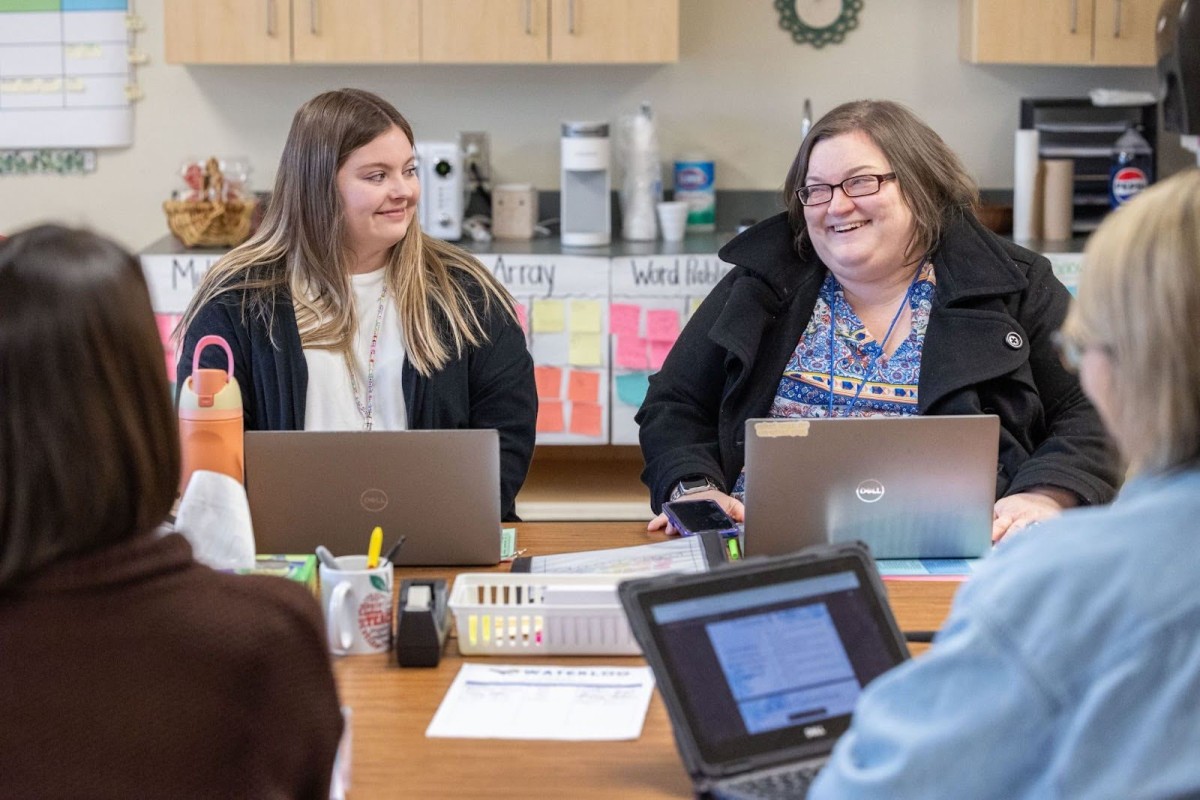What First-year Teachers Wish Every Leader Knew: A Teacher Panel Series
July 30, 2025

By NIET CEO Dr. Joshua Barnett
NIET forged its 25-year legacy through implementing proven strategies with partner schools, districts, states, and universities across the nation. Throughout this quarter century of experience, we have learned important lessons along the way, which is why we are intentional about keeping our ears and doors open to those we support in classrooms every day. Our mission – building educator excellence to give all students the opportunity for success – can only be achieved when teachers thrive.
First-year teachers offered a powerful window into challenges and successes that come with the beginning months of stepping into the classroom. As these teachers move from theory to practice, they are working to bridge and balance their preparation with the day-to-day demands of teaching. In this year’s conversations with early career teachers, we heard what first-year teachers need most, including: intentional mentoring, collaborative time for learning and planning, and systems that help them navigate learning curves and new expectations. Meeting these needs will lay the foundation for them to be long-term educators and ensure they and their students thrive.
3 Lessons from First-year Teachers:
1. Asking for Help Is a Tool – and NIET Makes It Easier: Learning is not done in a silo, and for first-year teachers, the same holds true as they navigate their initial experiences in the classroom. A key theme that emerged from our conversations with first-year teachers was how much smoother the transition into the field became when they were supported by peers, mentors, and colleagues.
“Once I began asking for help... There was a transformation both professionally and personally. I could ask for help and [my peers] would help me – it was way easier than trying to figure it out on my own,” one first-year teacher said.
Creating strong channels for support, like regular feedback cycles, can help new educators build the confidence and habit of asking for help to grow. Tools like the NIET Five Steps for Effective Learning offer a clear and constructive framework that is both needed and wanted by teachers, particularly novice teachers, to help them meet their goals in the classroom. As novice educators engage in feedback cycles and professional learning, they not only develop their skills but also find connection, which helps eliminate feelings of isolation that often accompany the first year in the profession.
2. Strong Relationships With Students Propel Effective Instruction: First-year teachers emphasized that the relationships they built with their students were at the heart of their effective teaching. These connections manifested in many ways and were rooted in the same foundations of teacher leadership that NIET works to implement with educators through coaching: trust, knowledge, and credibility. While these elements are often highlighted in NIET’s work with teacher leaders and mentors, new teachers reminded us that these same foundations are just as powerful in the classroom to elevate educators’ success.
“I feel like had I not created such a connection with my students, or had I not created an environment where they felt safe and where they felt respected and secure, I don't think I would have seen them open up as much,” one teacher said. “Creating that culture where they know that I'm going to help them regardless of what it is, whether it's an academic situation or something that has to do with that side of school, has been rewarding.”
3. Mentorship Is the Next Needed Step After Educator Prep: There was an undeniable and familiar theme from both aspiring and first-year teachers we spoke with: There is a lasting value in educator preparation – and a need for continued support once they step into their own classrooms. Teachers who completed prep programs with in-classroom experience spoke highly of those opportunities, particularly in equipping the new teachers with an understanding of the general cadence of a teacher’s job – from field trip flyers and paperwork to classroom management.
Participants shared time and again that even those entering the classroom from the most supportive educator preparation programs still have many questions and aspects of the job to learn. That is why the support cannot stop at graduation, these new teachers told us. Many described mentorship, particularly from formal roles, such as TAP System mentor and master teachers, as essential during their first year – especially when navigating unfamiliar moments and real-time challenges.
“One time I just could not teach this lesson, it just did not make sense to me,” one teacher said. “And I called upon my master teacher, and she just assured me, ‘I'm coming. Don't freak out. I'm going to show you how to do this and what questions to ask to just break it down.’ And that's when I just knew I was in the right space. I have the support that I need – and not only just like the verbal support, but the actions to suit it. And that's what every teacher needs – they need people to not only hear them but also to support them in action.”
At NIET, this participant defined who we are - not just verbal support, but the actions to follow it up. With layered support systems like including formal teacher leadership models, new teachers gain the reassurance and real-time guidance they need to tackle challenges with confidence – knowing they belong, and that growth is possible not only for their students, but for themselves.
Missed Part 1? Read What Aspiring Teachers Wish Every Leader Knew and stay tuned for Part 3 of this series, where we speak with aspiring, first-year, and second-year teachers to learn their needs and implement support based on their insights.